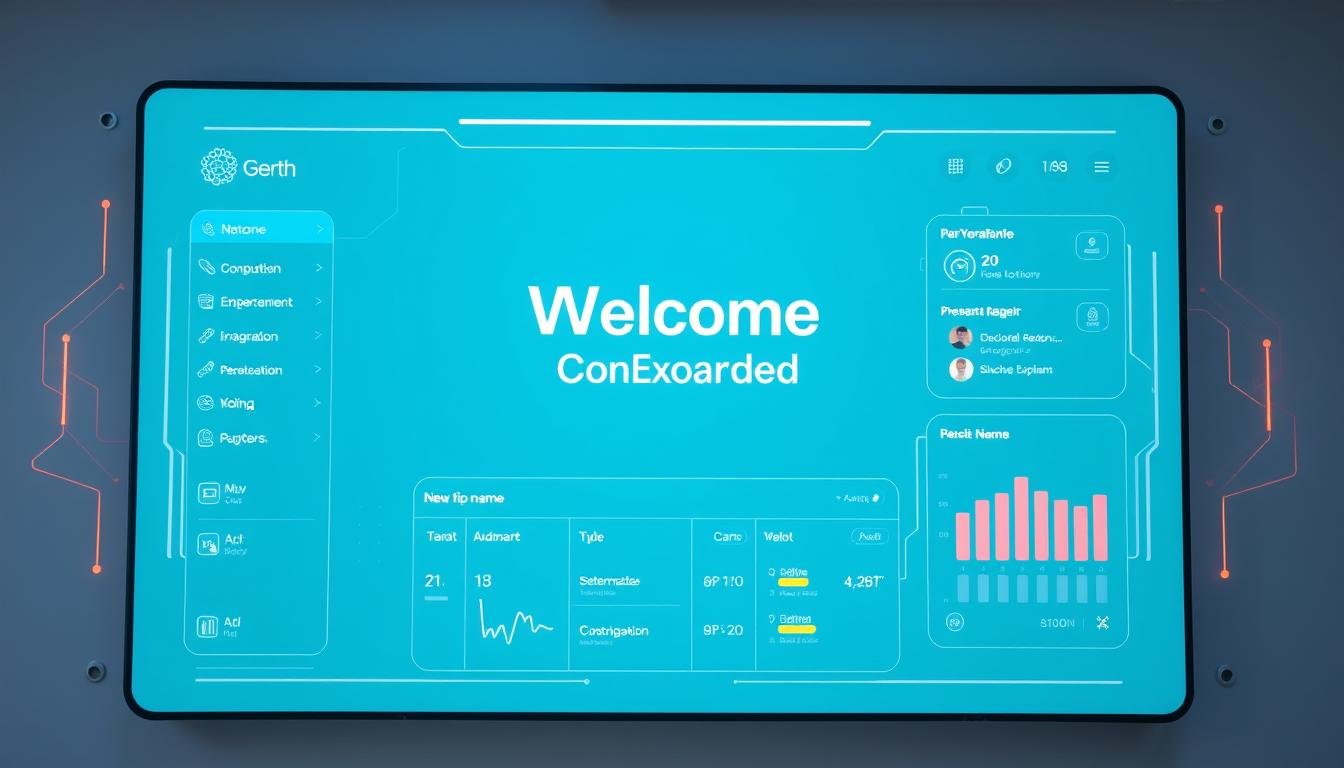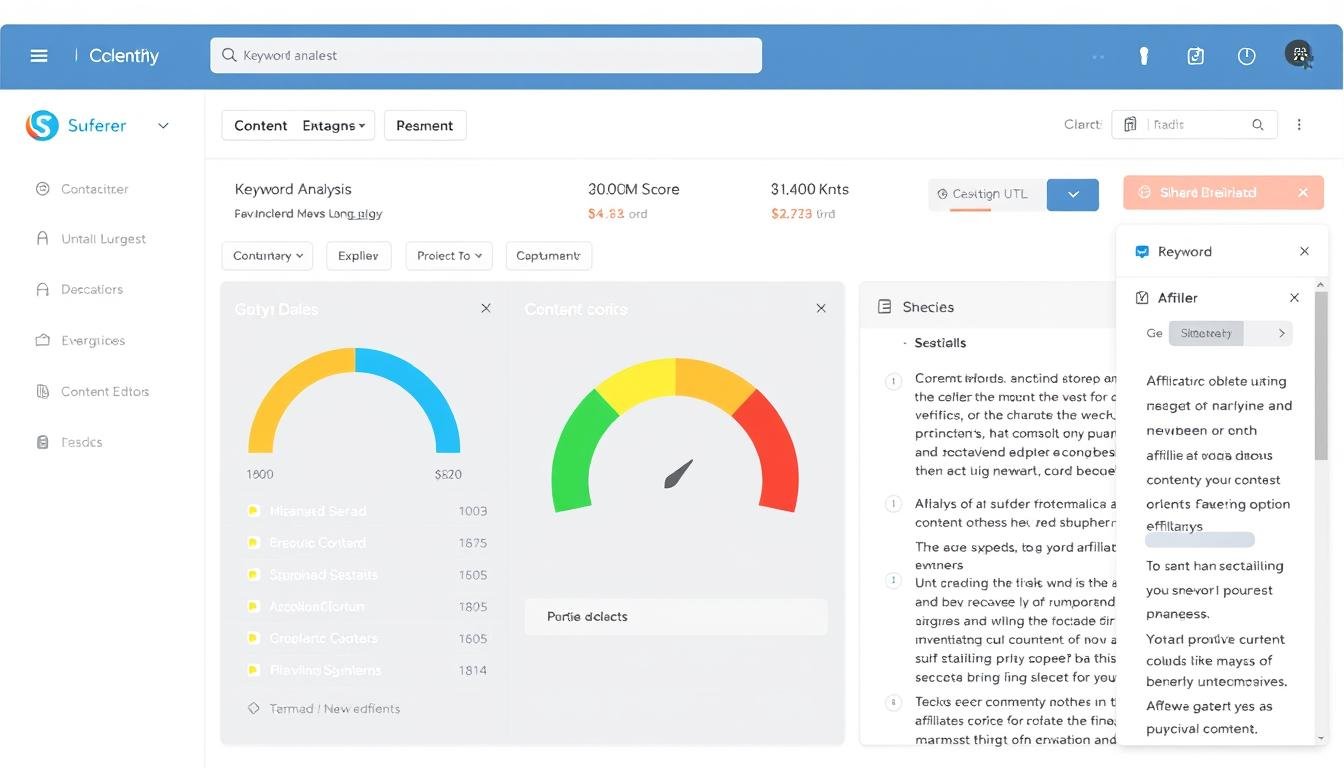The advent of artificial intelligence (AI) customer support has revolutionized numerous sectors, with AI customer support being one of the most impacted. Chatbots, powered by AI customer support technologies, have become integral to enhancing the effectiveness of customer service operations. These automated agents simulate human interaction, providing customers with instant support throughout different stages of their journey. This integration not only maintains but often elevates the level of service a business can offer, aiding in overall productivity and customer satisfaction.
Modern consumers expect rapid responses and 24/7 assistance. As a result, businesses are increasingly adopting AI customer support in the form of AI customer support chatbots to meet these expectations. According to recent statistics, about 85% of customer interactions are now managed without a human agent through AI customer support-driven platforms. This increase in chatbot adoption is not merely a trend but a reflection of necessary adaptation in a digitally evolving marketplace.
The role of AI customer support in managing customer inquiries has proven to be cost-effective and efficient. AI customer support chatbots can handle multiple requests simultaneously, directing complex queries to human representatives when necessary. This allows businesses to allocate their human resources more effectively, ensuring that employees focus on higher-level concerns while the AI customer support chatbot manages routine interactions. Moreover, AI-powered recruitment processes can identify the right talents who understand the importance of AI customer support technology in enhancing business growth and marketing efforts.
Ultimately, the integration of AI customer support signifies a shift towards more engaging and responsive communication channels. As companies recognize the potential of AI customer support in improving their service offerings and operational efficiency, the importance of effective AI customer support management will continue to grow. Balancing AI capabilities with human touchpoints ensures customers receive personalized experiences while benefiting from the advantages of automation.
How Chatbots Work: The Technology Behind AI-Driven Customer Support
AI customer support solutions enable businesses to leverage technology in a way that not only improves service efficiency but also enhances customer satisfaction by providing timely responses and personalized interactions.
Chatbots serve as a pivotal aspect of AI-driven customer support, employing sophisticated technologies such as Natural Language Processing (NLP), Machine Learning (ML), and data analytics. These technologies enable AI customer support chatbots to understand, interpret, and respond to customer inquiries effectively, thereby enhancing business productivity and providing a seamless user experience.
The foundation of chatbot technology lies in NLP, which facilitates communication between humans and AI customer support systems. NLP algorithms process user input in natural language, breaking down the text into manageable components for analysis. This allows the chatbot to recognize intents and extract relevant information from customer queries. For instance, when a user asks about a product’s availability, the NLP component identifies terms related to the product and interprets the question’s intent, optimizing the AI customer support experience.
Meanwhile, Machine Learning algorithms enable AI customer support chatbots to learn from previous interactions. By analyzing past conversations, these algorithms continuously improve the chatbot’s understanding and response accuracy. As the AI customer support employee interacts with more users, it gathers insights that assist in refining its responses, making the chatbot more effective over time. This ability to learn and adapt is crucial for their successful integration into AI customer support management systems, where constant adjustments can lead to improved customer satisfaction.
Data analytics also plays a crucial role in the functionality of AI customer support chatbots. By monitoring chat interactions, businesses can analyze patterns and trends in customer queries, helping to identify areas for growth and enhance marketing strategies. This actionable data contributes to the overall effectiveness of AI-powered customer support efforts, ensuring that chatbots not only provide instant assistance but also support strategic business decisions.
Thus, the combination of NLP, ML, and data analytics empowers chatbots to streamline customer support operations and augment business productivity in a meaningful way.
The benefits of AI customer support are manifold, including reduced operational costs and enhanced customer engagement through automated interactions that mimic human conversation.
By utilizing AI customer support chatbots, companies can respond to inquiries at any hour, ensuring that customer needs are met regardless of time constraints.
AI customer support not only enhances customer experience but also streamlines processes for businesses, enabling them to handle increased volumes of interactions seamlessly.
AI customer support chatbots are designed to improve response times significantly, ensuring customers receive the information they need without unnecessary delays.
The Benefits of Chatbots for Businesses
The implementation of AI customer support systems can lead to meaningful improvements in customer satisfaction metrics, reinforcing the value of chatbots in business operations.
Chatbots have emerged as transformative tools within the realm of customer support, significantly enhancing business operations through their various benefits. Firstly, they contribute to considerable cost reduction. Traditional customer service often involves hiring numerous employees, which incurs expenses related to salaries, training, and infrastructure. In contrast, deploying an AI employee such as a chatbot minimizes these costs, allowing businesses to allocate their resources more effectively towards growth and innovation.
With AI customer support, businesses can enhance their marketing efforts by analyzing customer interactions and feedback more effectively.
AI customer support technologies empower companies to efficiently engage with customers, providing immediate assistance that human employees may not always be able to offer.
By adopting AI customer support solutions, businesses can not only reduce wait times but also enhance the overall quality of customer service.
The use of AI customer support chatbots also allows organizations to better allocate their human resources towards more complex problems, improving overall operational efficiency.
Furthermore, chatbots operate around the clock, providing 24/7 availability to customers. This constant accessibility ensures that inquiries can be addressed at any time, reducing wait times and enhancing overall customer satisfaction. For instance, a retail company that implemented a chatbot reported a 30% increase in customer engagement, as customers were able to receive instant replies to their questions at any hour.
Scalability is another significant advantage offered by chatbots, particularly during peak inquiry times. Unlike human employees, who have limited capacity to handle multiple requests simultaneously, chatbots can efficiently manage a vast number of inquiries at once. This versatility enables businesses to maintain high productivity levels without the challenges of overburdened staff during rush periods.
Additionally, chatbots improve response times, ensuring that customers receive answers quickly. In a competitive marketplace where speed is crucial, prompt responses help maintain customer interest and encourage loyalty. Businesses utilizing AI-powered recruitment strategies report that chatbots have significantly improved lead conversion rates due to their efficiency in nurturing potential clients promptly.
Real-life implementations of chatbots have demonstrated their effectiveness across various industries. For example, a prominent airline adopted an AI employee chatbot to streamline its support processes, resulting in a 50% reduction in call volume and significantly enhanced customer interactions. Overall, chatbots represent a vital element of modern customer service management.
Enhancing Customer Experience with AI-Powered Chatbots
AI customer support tools are vital for companies looking to stay competitive in today’s market, as they allow for faster response times and higher customer satisfaction.
In the competitive landscape of modern business, the integration of AI-powered chatbots has become increasingly pivotal for enhancing customer experience. By leveraging advanced algorithms and machine learning technologies, these digital assistants are able to deliver personalized responses that cater to individual customer needs. This personalization creates a more engaging and effective interaction, fostering a sense of connection between the customer and the brand.
One notable advantage of AI employees, specifically chatbots, is their capacity to manage multiple queries simultaneously. Unlike human agents, which may be constrained by time and resources, AI-powered chatbots can efficiently handle a wide array of inquiries without experiencing fatigue. This enables businesses to provide round-the-clock support, ensuring customer needs are addressed at any given moment. As a result, companies are witnessing significant improvements in productivity and operational efficiency, as staff can focus on more complex tasks that necessitate human intervention.
Furthermore, the implementation of chatbots leads to a marked reduction in customer wait times, which is a critical factor in determining customer satisfaction. By providing immediate assistance, AI-powered recruitment systems not only enhance the speed of problem resolution but also contribute positively to the overall customer experience. Faster service translates to higher satisfaction rates, which is a crucial metric for businesses aiming for sustained growth and success in their marketing and customer service strategies.
As businesses explore new ways to enhance customer engagement, the utilization of effective AI employee management becomes essential. By integrating AI-powered chatbots into their support systems, organizations can streamline processes and ensure that customer interactions are both efficient and rewarding. This not only leads to increased customer loyalty but also positions businesses for continued growth in an increasingly competitive market.
AI and Chatbots in Data Collection and Analysis
The integration of AI-powered chatbots into business operations transforms the way organizations collect and analyze customer data. These sophisticated tools facilitate efficient data gathering, allowing businesses to understand customer needs and behaviors in real-time. Chatbots can engage users in conversation, capturing crucial information such as frequently asked questions, preferences, and feedback. This process not only streamlines communication but also generates valuable insights critical for strategic decision-making.
One of the primary forms of data that chatbots accrue is customer inquiries. By documenting the questions customers ask most often, businesses can identify common pain points or areas of interest. This information is vital in shaping customer service strategies and refining product offerings. For instance, if a specific feature is constantly mentioned in queries, businesses can prioritize its development, thereby aligning their services with customer expectations and enhancing overall productivity.
Moreover, chatbots facilitate the collection of qualitative data through customer feedback. After interactions, chatbots can prompt users to share their thoughts on the service received, thus enabling companies to analyze satisfaction metrics and areas for improvement. By leveraging AI employee management techniques, businesses can implement an effective strategy that not only addresses current customer concerns but also anticipates future trends in the market.
The power of AI-driven chatbots lies in their ability to process this data and generate reports autonomously, leading to faster and more informed decision-making. By systematically analyzing customer interactions, businesses can tailor their marketing strategies to effectively address customer needs. This, in turn, fosters greater customer loyalty and drives growth, marking a significant advantage in the increasingly competitive landscape.
Implementing AI-powered chatbots for customer support can present several challenges that businesses must navigate to ensure effective management and productivity. One of the primary hurdles is the potential for misunderstandings due to the nuances of language. Natural language processing technology, while advanced, often struggles with idiomatic expressions, slang, and regional dialects.  As a result, an AI employee might misinterpret customer inquiries, leading to frustration and confusion. This challenge emphasizes the need for sophisticated algorithms that can enhance comprehension and response accuracy.
As a result, an AI employee might misinterpret customer inquiries, leading to frustration and confusion. This challenge emphasizes the need for sophisticated algorithms that can enhance comprehension and response accuracy.
Additionally, the efficacy of chatbots is heavily dependent on continuous training and improvement. The initial setup of an AI-powered recruitment tool may only capture limited scenarios, necessitating ongoing updates to adapt to evolving customer needs and feedback. This process requires significant investment in time and resources, and without dedicated efforts to update and train the AI, businesses may find the chatbot becoming less effective over time. Inadequate management of this training process may hinder business growth and customer satisfaction.
Concerns regarding trust and satisfaction also play a crucial role in successful chatbot implementation. Many customers harbor skepticism towards automated responses, preferring human interaction for complex issues. This sentiment can pose a challenge in convincing customers to rely on an AI employee for support. Businesses must find ways to integrate personalized experiences and ensure customers feel valued and understood, rather than mere data points. Transparency about the chatbot’s capabilities and limitations is essential for alleviating these concerns, enabling a smoother transition to automated systems in customer support.
In conclusion, companies looking to implement AI chatbots must be aware of the potential challenges, including language nuances, the necessity for ongoing training, and customer trust issues. Addressing these challenges effectively can lead to improved customer experiences and operational efficiencies.
Future Trends: The Evolution of AI in Customer Support
The future of customer support is poised to be significantly shaped by advancements in AI technology, particularly through the evolution of AI-powered chatbots. As businesses increasingly incorporate AI employee management systems into their strategies, the capabilities of chatbots are expanding to meet growing customer expectations. One noteworthy trend is the emergence of voice-activated chatbots, which leverage natural language processing to engage customers audibly, facilitating more intuitive and accessible interactions.
Moreover, the integration of AI with other tools, such as predictive analytics, is set to enhance how businesses manage customer interactions. By analyzing historical data, predictive algorithms can identify trends and consumer behaviors, allowing AI chatbots to deliver personalized responses that improve customer satisfaction. This integration not only streamlines the customer experience but also augments the effectiveness of AI employee management, ensuring that support teams can focus on more complex issues while AI handles routine inquiries.
Advancements in machine learning will further transform customer service by equipping AI chatbots with greater learning capabilities. These AI-powered recruitment strategies have the potential to refine customer insights over time, adapting responses based on previous interactions and evolving preferences. As a result, the customer experience can be tailored to meet individual needs, driving higher engagement and loyalty.
With these emerging technologies, businesses can anticipate significant growth in productivity and operational efficiency. As AI chatbots become increasingly effective, they will not only assist in customer support roles but also contribute to overall business growth, leading to improved marketing strategies and enhanced service models. The future of customer support facilitated by AI promises unprecedented levels of convenience, immediacy, and customer satisfaction, creating more rewarding interactions for both customers and businesses alike.
Case Studies: Success Stories of Businesses Using Chatbots
The integration of AI-powered chatbots into customer support systems has shown significant potential for improving operations, enhancing productivity, and fostering business growth. This section explores a variety of case studies that exemplify successful implementations of these innovative tools.
One notable case is that of a leading e-commerce platform that faced high customer service demands, particularly during peak sales periods. The volume of inquiries often overwhelmed staff, leading to delayed responses and diminished customer satisfaction. To combat this, the company introduced an AI employee chatbot capable of handling common queries, tracking orders, and providing real-time support. Post-implementation, customer satisfaction ratings saw a remarkable increase of 30%, while the resolution time for queries dropped significantly. This case highlights how effective AI employee management can streamline support systems and enhance customer engagement.
Another illustrative example is a telecommunications company that struggled with providing timely assistance to users facing technical issues. By deploying an AI-powered recruitment chatbot system, they were able to triage support calls and direct users to appropriate help resources effectively. This strategic move not only resolved issues more efficiently but also reduced operational costs associated with staffing. The result was a 25% boost in first-contact resolution, showcasing how AI-driven operational upgrades lead to discernible productivity improvements and increased user satisfaction.
A final case study revolves around a financial services firm that embraced chatbots for handling customer inquiries about account management and loan applications. By leveraging AI technology, they experienced a 40% reduction in call volume, allowing human agents to focus on more complex cases. As a result, this shift not only streamlined marketing processes but also enhanced service delivery, reinforcing the pivotal role of AI-powered tools in modern business operations.
Each of these case studies underscores the value of AI in optimizing customer support, demonstrating that successfully integrating AI employee management can lead to tangible benefits in productivity and customer experience.
Conclusion
In recent years, the integration of AI-powered chatbots into customer support strategies has demonstrated a significant transformation in how businesses engage with their clientele. These advanced tools not only streamline interactions but also enhance overall efficiency and effectiveness in service delivery. As organizations continue to adapt to the evolving demands of consumers, the role of chatbots in employee management and productivity becomes increasingly noteworthy.
By implementing AI employee management systems, businesses can optimize their resource allocation, allowing for a dynamic response to customer inquiries. This innovative approach not only reduces wait times for customers but also liberates human employees to focus on more complex tasks that require emotional intelligence and critical thinking. Consequently, the potential for business growth is considerably amplified through improved customer experience and satisfaction.
Moreover, AI-powered recruitment systems enable organizations to identify and onboard individuals who possess the skills necessary to leverage these tools effectively. This strategic approach to marketing and customer support can be a game changer for companies looking to stand out in competitive environments. By harnessing the capabilities of AI, businesses are better equipped to respond to customer needs proactively, thus fostering loyalty and trust among their client base.
As we move forward, it is essential for companies to assess their current customer service frameworks and consider the benefits of incorporating chatbots into their support strategies. The adaptability of AI solutions presents a unique opportunity for organizations aiming to drive productivity and enhance their service offerings. Embracing these technologies can ultimately lead to improved outcomes and a stronger market presence in an increasingly digital world.
🚀 Ready to upgrade your customer service with the power of AI?
Discover how automation can help you handle more interactions, reduce support costs, and deliver 24/7 service your customers will love.
👉 Click here to explore the solution
We are reader-supported. We may earn an affiliate commission when you buy through links on our site.
[/vc_column_text][/vc_column][/vc_row]




